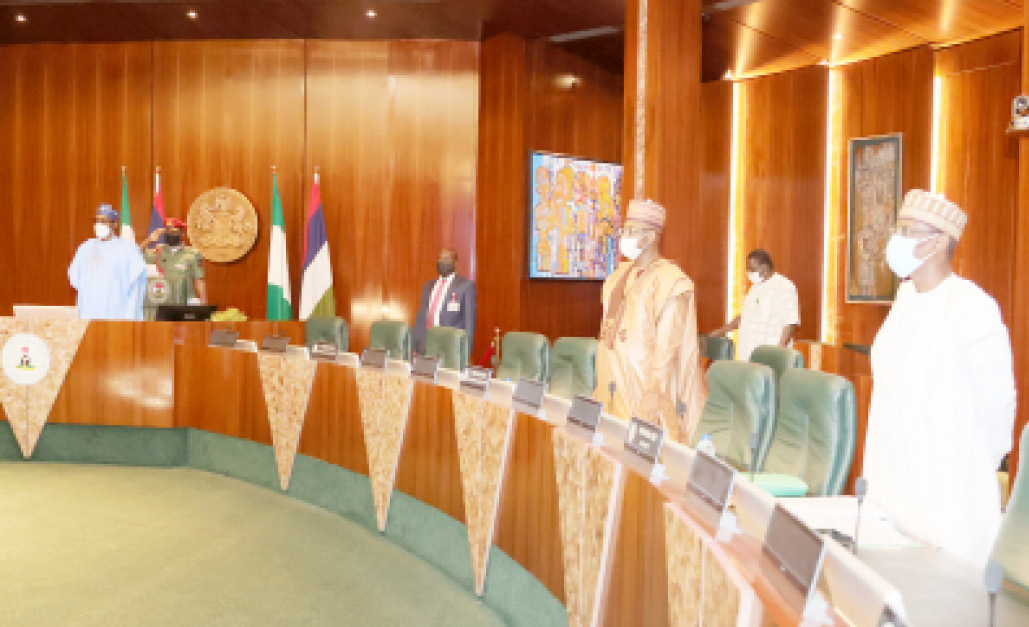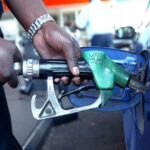The Presidency, on Wednesday, said Nigerians will pay a price for the federal government’s decision to maintain fuel subsidy for the next 18 months.
The warning came as the Federal Executive Council (FEC) approved a N3 trillion lifeline to cater for the payments for this year.
The government’s payment plan announced at the end of the FEC meeting on Wednesday would jerk up the N17.1 trillion budget for 2022, which is criticised for its huge deficit.
Presidential spokesman, Femi Adesina, had stated earlier on Channels Television’s Sunrise Daily programme that Nigerians would have to pay a price if the subsidy is retained beyond June 2022.
He also dismissed insinuations especially by the Peoples Democratic Party (PDP) that the decision by the federal government to retain
fuel subsidy was based on the 2023 elections.
He said the decision had left the government with no other choice than to continue borrowing to fulfil its fiscal obligations.
Adesina said: “It is done because as the minister of finance stated, the timing is not auspicious, inflation is still high.
“In the past eight months, we saw inflation reducing but last month, it went up again; further consultations need to happen with all the stakeholders… The timing is not right, it will exacerbate the hardship of the people and the president genuinely cares.
“Politics is part of our lives, but elections will just be one event in the life of the country. When elections come, they go, the country continues. This fuel subsidy, whether it stays or goes, is going to have a serious impact on the economy.”
On the financial cost of the 18-month extension for subsidy removal, the presidential spokesperson said: “Head or tail, Nigeria will have to pay a price; it is either we pay the price for the removal in consonance and in conjunction with the understanding of the people. The other cost is that borrowings may continue and things may be difficult fiscally for both the state and the federal government.”
Minister justifies subsidy hike
The Minister of Finance, Budget and National Planning, Zainab Ahmed, who briefed newsmen after the FEC meeting at the Presidential Villa on Wednesday, said the federal government has proposed a N3 trillion budget to meet the incremental fuel subsidy request in the 2022 budget.
According to her, only N443 billion had been provided for in the budget passed, which was meant to accommodate subsidies from January to June.
She said the new request was considered by the Council, which directed the ministry to approach the National Assembly for an amendment to the fiscal framework as well as the budget.
“The Nigerian National Petroleum Company (NNPC) has presented to the ministry a request for N3 trillion as fuel subsidy for 2022. What this means is that we have to make an incremental provision of N2.557 trillion to be able to meet the subsidy requirement, which is averaging about N270 billion per month.”
Gives conflicting figures on monthly subsidy payment
On Monday, the finance minister met with the Senate President, Ahmad Lawan on the petrol subsidy issue where she stated that the average being paid monthly is around N250 billion.
But while briefing the State House reporters yesterday, the minister said the N3 trillion planned spending on petrol subsidy, specifically the N2.557tr to be spent from July 2022, would be about N270bn per month.
In defending these figures further, the minister said: “In 2021, the actual under-recovery that has been charged to the federation was N1.2 trillion, which means an average of N100 billion, but in 2022, because of the increased crude oil price per barrel in the global market, now at $80 per barrel and also because an NNPC’s assessment is that the country is consuming 65.7 million litres per day, now we will end up with the incremental cost of N3 trillion in 2022.”
How FG spent over N12.5tr on subsidy in 16 years
Since 2006, the federal government may have spent over N12,566.58 trillion on petrol subsidy up to 2021, reports have shown. That is about 16 years so far.
In a breakdown on the cumulative spending, a report by the defunct Petroleum Products Pricing Regulatory Agency (PPPRA) now Nigerian Midstream and Downstream Petroleum Regulatory Authority (NMDPRA) in 2020, stated that Nigeria spent N8.94tr on petrol subsidy in 10 years, between 2006 and 2015.
The money was paid to oil marketers and the then Nigerian National Petroleum Corporation (NNPC) now called Nigerian National Petroleum Company (NNPC) Ltd.
The figure indicated that N257.36bn was spent in 2006, which rose to N271bn in 2007 and nearly tripled to N630.57bn in 2008.
By 2009, it dropped to N409.31bn and rose to N667.08bn in 2010. According to the report, Nigeria paid N2.1tr as subsidy in 2011, which was an increase of N1.4tr from the payment made in 2010. By 2012, the figure paid on petrol was N1.35tr; N1.16.63tr was spent in 2013, rising to N1.217tr in 2014 and N653bn in 2015.
By 2016, NNPC became the sole importer of petrol and there was no record of payment that year. However, reports indicate that NNPC paid N144.53bn in 2017, N730.86bn in 2018, N551.22bn in 2019 and over N1tr in 2020, which was the pandemic year.
As of 2021, NNPC had spent N1.2tr as subsidy with an average of N150bn per month. The highest it paid last year on a monthly basis was N173.1bn in August 2021.
Doubts as House probes daily fuel consumption, refineries
Meanwhile, the House of Representatives on Wednesday set up two ad hoc committees to investigate Nigeria’s daily fuel consumption and the state of the country’s refineries as the debate on the removal of fuel subsidy rages.
Speaker Femi Gbajabiamila who announced this at the resumption of plenary said the outcome of the investigations would guide the House on whatever action it would take on the raging issue of fuel subsidy removal.
The ad hoc committee investigating daily fuel consumption is headed by Rep Abdullahi Ningi with 13 others as members while the ad hoc committee to look into the state of refineries is headed by Engr. Johnson and 14 other members.
Gbajabiamila said there has been raging debate on the exact quantity of petroleum the country consumes on a daily basis with different figures being bandied every now and then.
The speaker urged members of the committee to be thorough in carrying out their investigations.
“We have had figures bandied here and there without any authenticity. Before we can begin to talk about subsidy, we need to know how much we are consuming.
“And in doing their work, they should not restrict themselves to the figures by the NNPC, which is an interested party of course; go far and wide and talk to experts; talk to national and international experts who would know; talk to vehicles’ registration council.
“We just need to know the amount of fuel we consume and a lot of that will be a function of how many cars we have on our roads. Talk to the transport unions and every other organisation and do with facts.
“The second committee is to look into the refineries and the state of repair or disrepair and determine what is needed or what will be needed to bring the refineries back to life again.
“Their job is to strictly look into the issues of refineries. These two committees require thorough and painstaking work but I think these two questions are fundamental to the ongoing debate that has engulfed us in this country today.
“These questions need to be answered before we look into the issue of subsidy”, he said.
The committees have four weeks to carry out their investigations and report back to the House.
‘Nothing will come out from investigation’
Sources in two of the agencies responsible for monitoring happenings in the petroleum sector said it was unlikely for the House of Reps to uncover anything.
One of them said, “The whole probe will fizzle out in the coming days because the issue of how oil is imported, stored and distributed is shrouded in many economic and political considerations.
“Of course, even the NNPC if you ask them today, they would tell you the number of trucks released for consumption in all the states. However, the problem starts from monitoring where the trucks dispense the products.”
The second source said rather than probing the litres being consumed in Nigeria, the Reps should tackle agencies responsible for policing Nigerian borders with neighbouring countries.
“The truth is that we subsidise oil for all our neighbouring countries- Niger, Chad, Cameroon and Benin.
“Just go to our borders at night and see how trucks are moving out with the petroleum products. I don’t want to call it smuggling of the product because there is a cartel handling that.
“Therefore, for us to get the actual figure of what we consume at home, we must tighten the security of our borders,” he said.
By Muideen Olaniyi, Faruk Shuaib, Itodo D. Sule & Simon E. Sunday

 Join Daily Trust WhatsApp Community For Quick Access To News and Happenings Around You.
Join Daily Trust WhatsApp Community For Quick Access To News and Happenings Around You.


